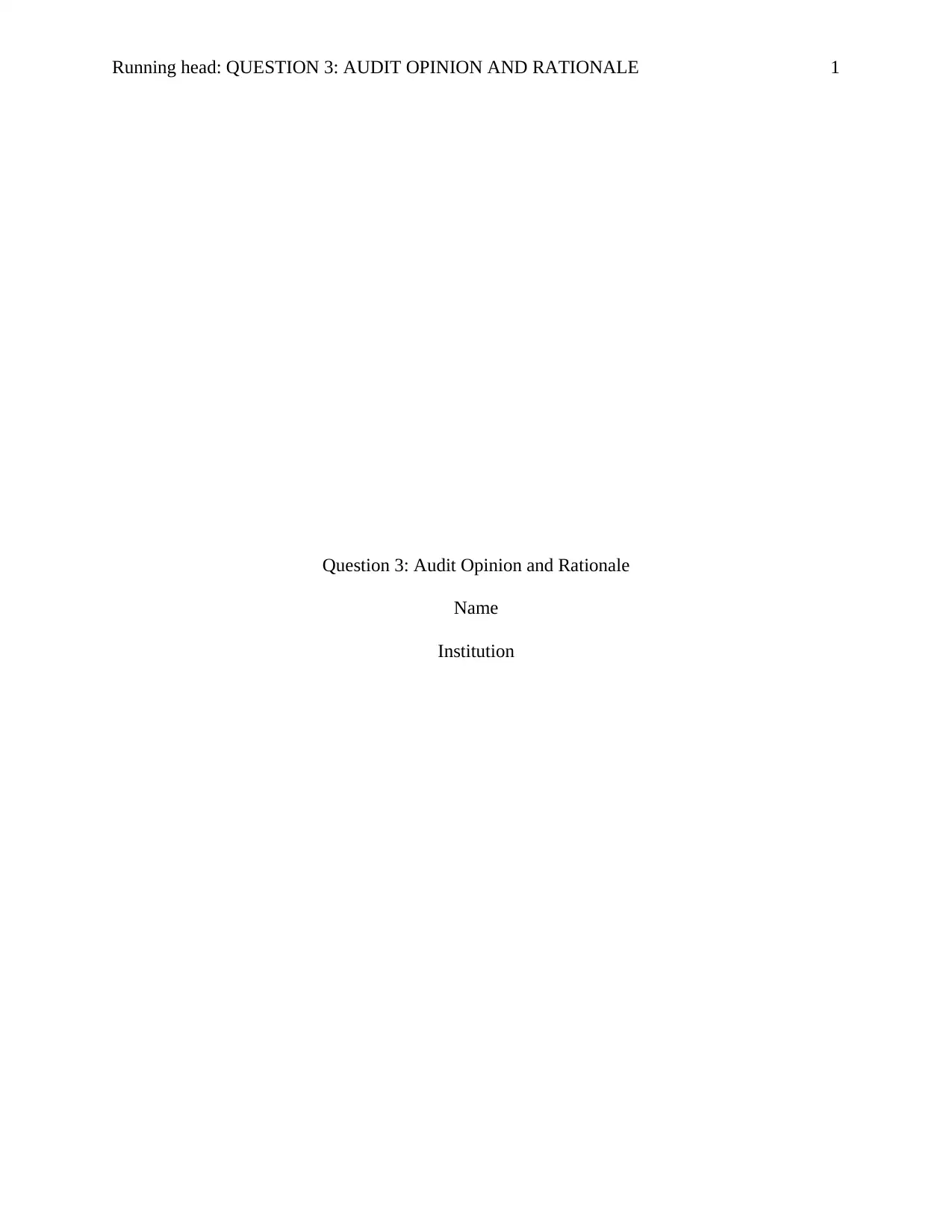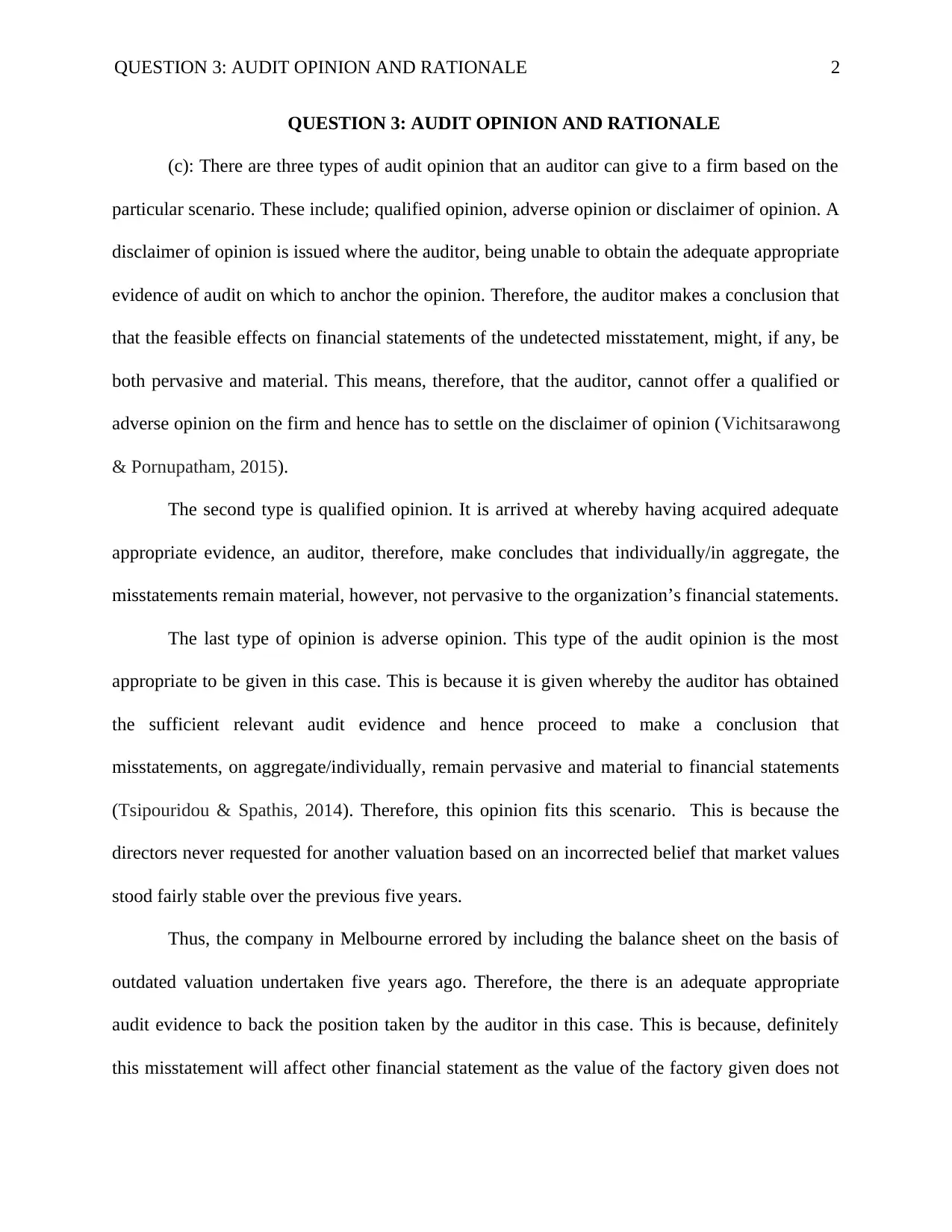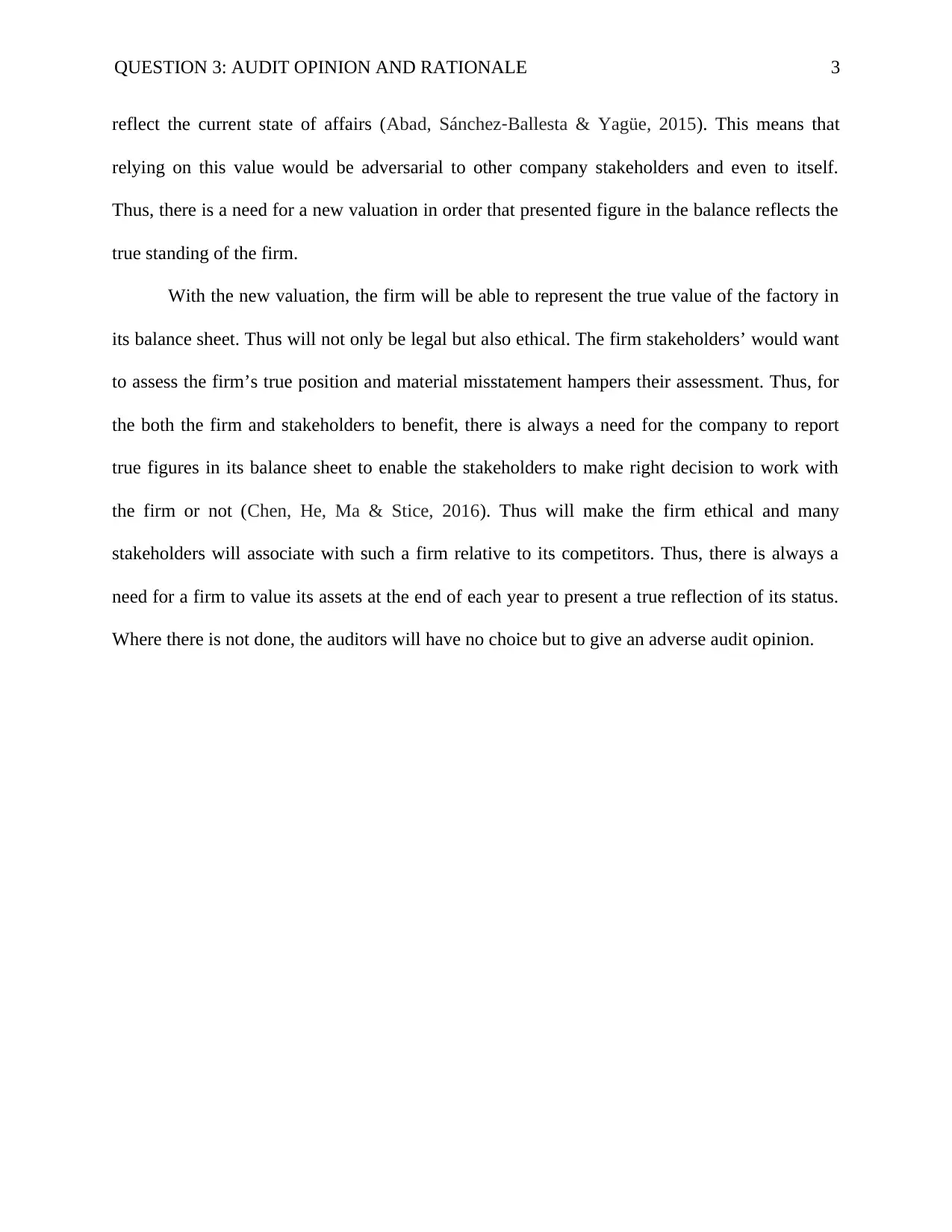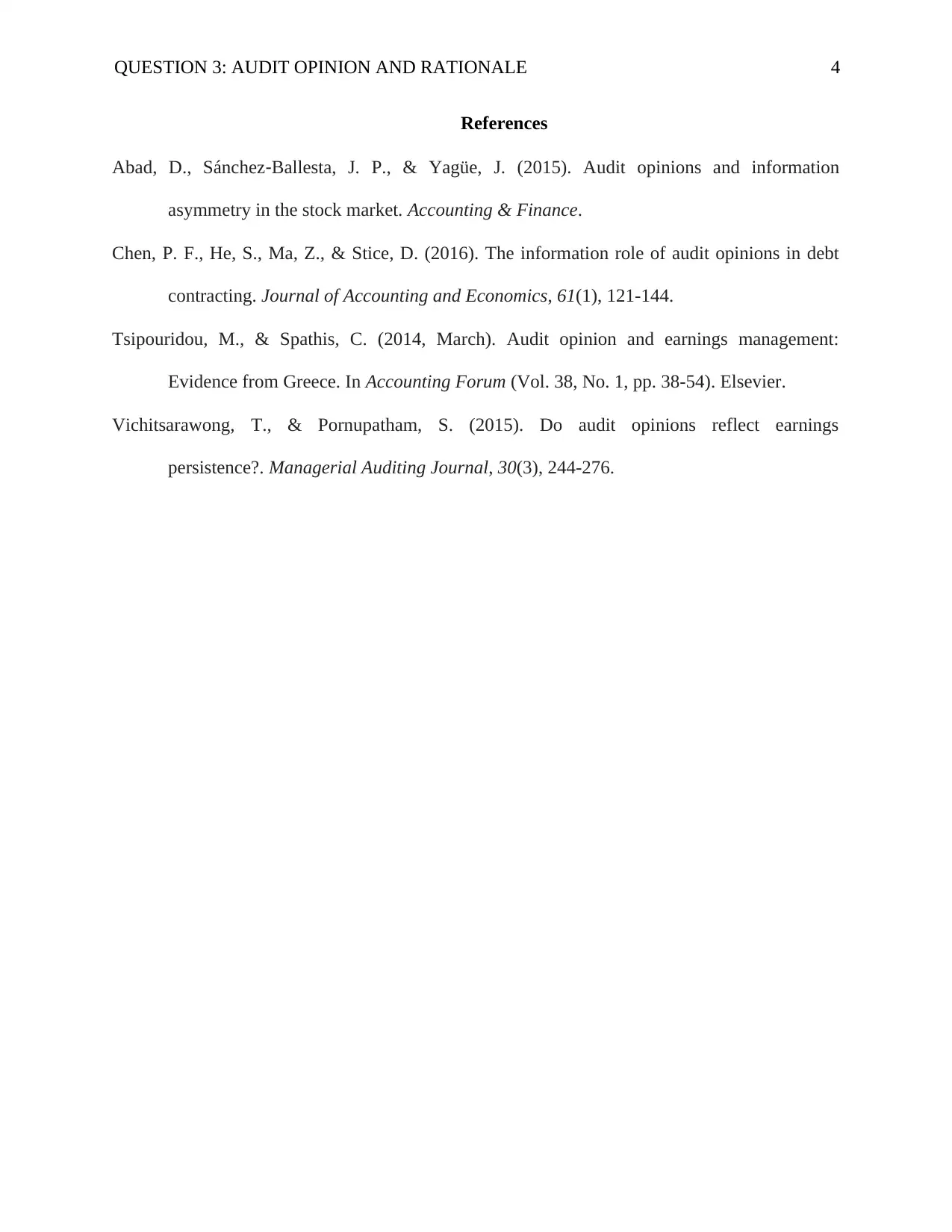Analysis of Audit Opinion and Rationale for Financial Reporting
VerifiedAdded on 2020/05/16
|4
|757
|211
Homework Assignment
AI Summary
This assignment analyzes the different types of audit opinions an auditor can issue, namely qualified, adverse, and disclaimer of opinion, and the rationale behind each. It explains when each opinion is appropriate, focusing on the significance of audit evidence and misstatements in financial statements. The adverse opinion is deemed most appropriate in a scenario where a company used outdated valuations, leading to material misstatements. The document emphasizes the importance of accurate asset valuation for stakeholders to make informed decisions, highlighting the ethical implications of misrepresentation and the necessity of a new valuation to reflect the true financial standing of the firm. References to relevant research papers support the analysis.
1 out of 4











![[object Object]](/_next/static/media/star-bottom.7253800d.svg)